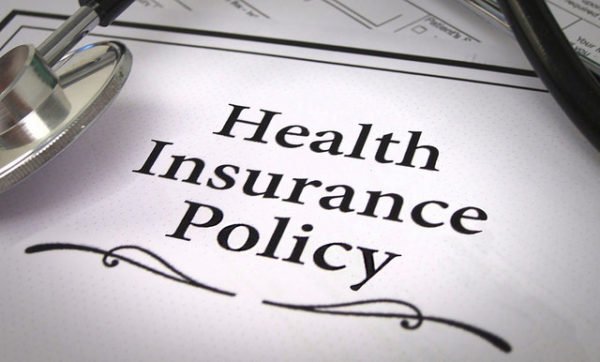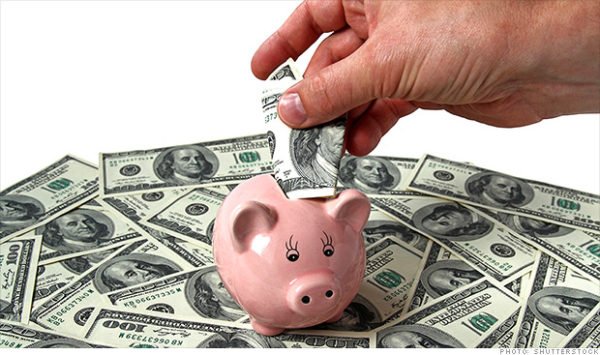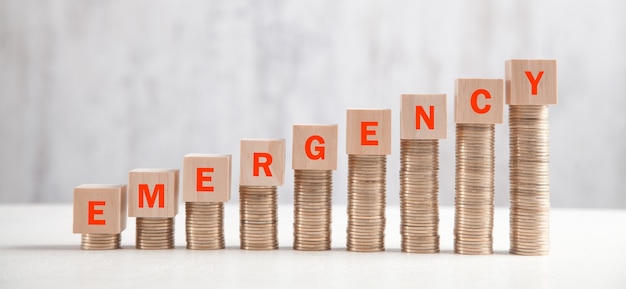Save your money: this piece of financial advice is universal. It doesn’t matter who you ask, everyone knows that having an emergency fund is essential. What’s less obvious is how you build it or where to put it all. That’s where asking the right questions can come in handy. Below, you’ll find the answers to five important questions about your emergency fund.
1. How Much Should I Save?
A prevailing rule of thumb for emergency savings is to squirrel away enough to cover three to six months of living expenses.
But how much you need to feel safe in an emergency is subjective. It depends on a lot of factors, like your risk tolerance, support system, and the emergency itself.
2. What if an Emergency Arrives Before I’ve Saved Enough?
Emergencies don’t follow a strict schedule like your rent payments or utilities. They arrive sporadically throughout the year, usually when you’re least prepared to handle them.
If you don’t have adequate savings for an unexpected emergency repair or medical expense, you might need to borrow money. There are personal loans like an online installment loan or line of credit that can be your safety net when your savings fall short.
3. Should I Save or Pay off Debt?
It can be challenging to juggle both of these goals simultaneously. If you’re on a tight budget, you might have to choose one or the other.
In that case, it’s essential you make any minimum payment on installment loans and line of credit personal loans. This will protect you from late fines, extra interest charges, and potential damage to your credit.
If you have any leftover cash, put it toward a small emergency fund, aiming for something like $1,000 rather than the usual six months of expenses. Savings win over debt here because it’ll help you avoid adding to your debt.
Once you feel secure, start using your expendable cash on debt payments. Choose between the avalanche and snowball methods to find out which debt you should target first.
4. What Can I Use it On?
Use your emergency fund on unpredictable, essential expenses that you didn’t think to include in your budget. Think medical expenses not covered by insurance or auto or household repairs that you can’t ignore.
If you still aren’t sure, it’s helpful treating your fund like it’s an installment loan.
- Necessity: Due to their cost, you would only ever take out an installment loan online if you couldn’t wait to pay a bill or repair. Installment loans are designed to help with unavoidable, unexpected emergencies that you can’t delay. So is your emergency fund.
- Repayment: An essential part of the borrowing process is paying back your installment loan. The same goes for your emergency fund. You should pay back whatever you take so that you’re prepared for the next unexpected expense.
5. Am I Making the Most out of My Savings?
Consider where you keep your emergency fund. A stack of cash under the mattress isn’t just old-fashioned. It’s also not using your money to its full potential because you won’t earn interest on this cash.
Interest is a two-way street. It’s something you pay whenever you borrow money, but it’s something you earn when you save it.
Shop around for savings accounts with a high interest rate without penalizing you for taking out your money out of the blue.
Did this answer your most burning questions about saving? If not, keep asking until you build out savings that can handle any emergency.

(source)
The passing of the American Health Care Act (better known as the abbreviated AHCA or Trumpcare) was a landmark moment in Donald Trump’s youthful presidency. It had initially appeared that the grand operational to rid America of “Obamacare” had floundered, and would be pushed to the back of the legislative agenda for the foreseeable future.
Then, it rose from the ashes, a phoenix of a bill that seemed to settle the concerns that had lead to the original vote being cancelled. It passed with a slender majority, and now goes to the Senate to be considered, before becoming law. In fairness, it is suspected the bill won’t pass the Senate without significant changes, but it still leaves the realistic possibility that Democrats feared: millions could lose healthcare coverage.
In fact, it might be even worse than that. Thanks to the removal of the necessity of coverage for pre-existing conditions (which include, by the AHCA’s definition, pregnancy or even acne – the list is long), there’s a chance that huge amounts of people will be left with ‘junk’ insurance. That is insurance that exists, but which they – thanks to the huge range of pre-existing conditions – can never realistically claim on.
It’s a rough situation, and one that merits a lot of scrutiny in future. There’s a way to go before it becomes law. However, the passage through Congress of the bill has meant that thousands of people are now wondering what happens next – especially those who rely on Obamacare or Medicaid for their healthcare coverage entirely.
Should People Worry?
It would be ideal if the dismissal of this fear was simple, but alas, it’s not. There’s good reason for those who have relied on these government coverage levels to feel concerned. The new AHCA is going to change almost everything, and could cut thousands off from potentially life-saving treatment. While the Senate will likely make changes, it’s not going to wholesale switch the bill back to what Americans recognize as their healthcare today.
The key point to remember if you are concerned about these changes is that you have got time. While the AHCA was passed quickly in its rewritten form, it nevertheless will take some time before it’s signed into law.
So, now is the time to start preparing for what happens if you lose your coverage and can’t afford to replace it.

(source)
How Did Americans Cope Before The Affordable Care Act?
Better known as “Obamacare”, the Affordable Care Act brought in changes to how Americans paid for their healthcare coverage. It gave insurance to millions who had otherwise been unable to afford it, or had been unable to obtain coverage due to pre-existing conditions. It was the biggest shake up of American healthcare since the war.
Before it came into law, the answer to the above question is… they didn’t. Medical expenses were the primary reason for personal bankruptcy in the USA for years. The bills for medical expenses were so high that some just couldn’t afford any kind of healthcare at all, instead resorting to cheap, at-home remedies to try and manage conditions. It was a bad situation, which is why Barack Obama felt it had to change.
How Can People Manage Without Insufficient Healthcare?
So what some Americans now face is a return to the days of lack of coverage. While those on the lowest incomes will still have some level of coverage, it’s those on lower or middle incomes that will miss out.
One thing to keep in mind if you find yourself stuck for coverage is that medical expenses are not something you can ignore. If you receive a bill from a hospital, treat it like a priority, an essential that you have to get cleared – even if that means going without in other areas of life. This can be difficult if you’re suffering an ongoing condition, but it still has to be done. Losing track of what you owe and not scrutinizing your bill can see additional charges and interest added, making a bad situation all the worse.
If you can’t afford coverage and do need medical intervention, then get ahead of it. It’s quick and easy to search for personal loans online, which you can use to clear the hospital bill. It’s still a debt, but it’s a controlled one that isn’t going to put your house on the line.
As you have warning before these changes come into law, now would be a good time to start a savings account. Separate this from your general, everyday banking and contribute to it wherever possible. Use the money in this account for medical expenses only. This is a method known as “self-insurance”, and it might be the best option if you know you’re not going to be able to afford the full monthly premium for full coverage. If you start building up your savings now, then you have a cushion to fall back on if the AHCA changes do impact you.
How Do You Cope With The Uncertainty?

(source)
The last question is more emotional than practical, but still well worth considering. One of the major issues in this debate at this point in time is the uncertainty: will it pass the Senate? What will the AHCA look like when the Senate have made their changes? Will I – or anyone I care about – be impacted by the changes?
A good rule of thumb is simply to try and prepare for the worst, but hope for the best. Figure out how you would borrow money to pay any bills; have a savings stack to fall back on should you become unwell. Bear in mind that, for some people, the AHCA will save them money on their coverage – so it might not all be bad news. Keep an eye on the news and hope the Senate does you a few favors. It’s not ideal, but that’s how lawmaking goes: it takes time.




